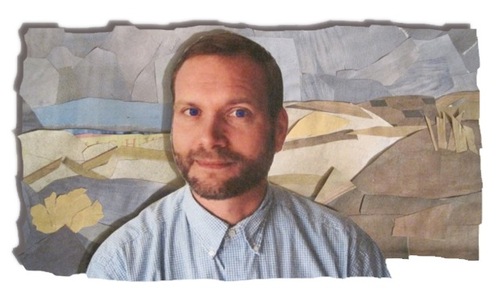
An interview with Greg Newby (CEO and Director of Project Gutenberg)
Greg Newby—Director of the Arctic Region Supercomputing Center; an advocate of ethical hacking; and an avid dogsled musher—is also the volunteer CEO and Director of Project Gutenberg, a collection of over 40,000 free eBooks. Project Gutenberg got its start in 1971 when founder Michael S. Hart made the Declaration of Independence available for download on an early computer network. Hart died in 2011, and Newby, who has run the Gutenberg archive for many years, spoke with me in December 2012 about his friendship with Hart, their joint advocacy of “everyone their own library,” and the history and future of Project Gutenberg.
Two minutes before we were scheduled to talk, the doorbell rang at my home in the D.C. suburbs. I opened the door, and a woman–a stranger–standing in the dark with a bag of books looked behind me and said, “Oh, I see you have enough books.” She walked away, and I locked the door and called Newby at his University of Alaska Fairbanks office.
— Ingrid Satelmajer
I. Down the Rabbit Hole
THE BELIEVER: I thought I would ask you about your early involvement with Project Gutenberg—how’d you become involved?
GREG NEWBY: I became aware of electronic books when I was at SUNY Albany. I was there for my master’s degree, around 1986. Somewhere in that period my buddy emailed me a copy of Alice’s Adventures in Wonderland—the Millennium Fulcrum Edition. So I was aware of electronic books and followed them a little bit; I was involved with digital culture. These were pretty early days, the 1980s, when I was on one of the early computer networks of the day. Then I got my first professor job at the University of Illinois in the Graduate School of Library and Information Science in the fall semester of 1991. And there was a local newspaper article where they interviewed Michael [Hart], a local personality. Someone brought it to my attention and I said, Oh! This is the guy that did Alice in Wonderland! So I called him on the phone and we got together. We became friends, and I got involved very immediately with doing stuff for Gutenberg, then I got more involved over the years and today, I’m essentially the guy. Everything’s landed in my lap.
BLVR: Did you ever type in a text?
GN: I actually did two early ones. The whole book I did was #52, Rene Descartes’s Discourse on Method, around ’93. I did that book on an Apple computer that actually had been donated by the Apple Company to Project Gutenberg.We managed to fry the...
You have reached your article limit
Sign up for a digital subscription and continue reading all new issues, plus our entire archives, for just $1.50/month.
Already a subscriber? Sign in




